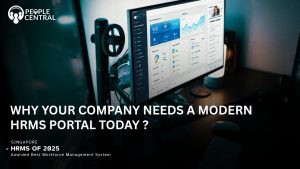Understanding CPF Contributions
The Central Provident Fund (CPF) is a mandatory savings scheme in Singapore that sets aside a portion of your income for retirement, healthcare, and housing. Both employees and employers contribute to this fund. While employees have a direct say in how their CPF is allocated, employers’ contributions are mandated by the government.
CPF | Employer’s CPF Contribution: A Breakdown
The amount an employer contributes to an employee’s CPF depends on a few factors:
- Employee’s age: The contribution rate varies based on the employee’s age.
- Employee’s citizenship or residency status: Singapore Citizens and Permanent Residents have different contribution rates compared to other employment pass holders.
- Employee’s salary: The contribution is calculated as a percentage of the employee’s total wages.
Total Wages for CPF purposes include both Ordinary Wages and Additional Wages. Ordinary Wages typically refer to basic salary, fixed allowances, and overtime pay. Additional Wages include bonuses, commissions, and other variable components.
CPF Contribution Rates
The CPF Board provides a CPF Contribution Calculator on its website to help employers determine the exact contribution amount. However, to give you a general idea, here’s a simplified table of contribution rates for Singapore Citizens and Permanent Residents aged 55 and below:
| Age Group | Ordinary Wages | Additional Wages |
| 35 and below | 17% | 13% |
| 35 to 50 | 17% | 9% |
| 50 to 55 | 13% | 9% |
Note: These rates are subject to change. Always refer to the official CPF website for the most accurate and up-to-date information.
CPF: How Is It Calculated?
Let’s illustrate with an example. Suppose an employee aged 30 is a Singapore Citizen earning a monthly salary of $3,000 (Ordinary Wages) and a bonus equivalent to one month’s salary (Additional Wages).
- Employer’s contribution for Ordinary Wages: 17% of $3,000 = $510
- Employer’s contribution for Additional Wages: 13% of $3,000 = $390
- Total employer’s CPF contribution: $510 + $390 = $900
CPF: Importance of Accurate CPF Contributions
Employers have a legal obligation to contribute the correct amount of CPF to their employees’ accounts. Failure to do so can result in penalties. Accurate CPF contributions are crucial for employees’ financial security, especially for retirement, healthcare, and housing needs.
Additional Considerations
- CPF Medisave: A portion of the CPF contributions goes towards the Medisave account, which can be used for approved medical expenses.
- CPF Housing: Another portion is allocated to the CPF Ordinary Account, which can be used for housing-related matters.
- CPF Retirement Account: The remaining amount goes into the CPF Special Account, which is primarily for retirement savings.
- CPF Contribution Limits: There are upper limits for CPF contributions based on the employee’s age and salary.
Suggested Read: Payroll Software For Singapore
How PeopleCentral Can Help You Stay Compliant with CPF
PeopleCentral, a robust HRMS, can be a powerful tool in ensuring CPF compliance. Here’s how:
1. Accurate Employee Data Management
- Centralized Employee Database: Maintain accurate and up-to-date employee information, including citizenship, residency status, age, and salary components (ordinary and additional wages).
- Real-time Updates: Ensure that employee data is updated promptly to reflect changes in salary, employment status, or personal details.
2. Automated CPF Calculations
- Built-in CPF Calculation Engine: Leverage the system’s capability to automatically calculate CPF contributions based on employee details and the latest CPF rates.
- Error Reduction: Minimize manual calculations and the associated risk of errors.
3. Compliance Calendar and Reminders
- CPF Filing Deadlines: Set up automated reminders for CPF contribution filing deadlines.
- Proactive Compliance: Avoid penalties by ensuring timely submissions.
4. CPF Reporting and Reconciliation
- Detailed Reports: Generate comprehensive CPF reports for internal tracking and audit purposes.
- Reconciliation Tools: Facilitate easy comparison of payroll data with CPF contributions.
5. Integration with CPF Board Systems
- Seamless Data Transfer: Integrate PeopleCentral with CPF Board systems for efficient data exchange.
- Reduced Manual Intervention: Streamline the CPF contribution submission process.
6. Audit Trail and Data Security
- Comprehensive Audit Logs: Maintain a detailed record of CPF-related transactions and changes.
- Data Protection: Protect sensitive employee data and information through robust security measures.
7. Stay Updated with CPF Regulations
- Regular Updates: Ensure the system is updated with the latest regulations and guidelines.
- Compliance Assurance: Stay ahead of changes in CPF requirements.
By leveraging these capabilities, People Central can significantly enhance your organisation’s compliance efforts, reducing the risk of penalties and ensuring accurate contributions for your employees.
Conclusion
Understanding employer’s contributions is essential for businesses operating in Singapore. By accurately calculating and remitting the contributions, employers not only fulfil their legal obligations but also contribute to the financial well-being of their employees.








 5
5


























